
What is Elder care and caregiving ?

The support and assistance given to senior citizens who may need help with everyday tasks or health management is referred to as elder care.
Personal care, medical care, transportation, meal preparation, and help with domestic tasks are just a few examples of the many services that can be included in elder care.
The act of offering care to an elderly person who might be unable to take care of themselves is known as caregiving.
Family members, close friends, or paid professionals can serve as caregivers. Even though providing care for someone else can be fulfilling, it can also be physically and emotionally taxing, especially if the caregiver is doing so for a prolonged period of time.
Personal care, pharmaceutical management, financial management, arranging for medical appointments, and emotional support are just a few of the responsibilities caregivers may have. To avoid burnout and ensure they can continue giving care successfully, it is crucial for carers to take care of themselves and seek support when necessary.
As the world's population ages, elder care and caring are becoming more and more significant.
By 2050, 2 billion individuals worldwide are anticipated to be over the age of 60, according to the World Health Organization. The need for elder care and caregiving services is rising as a result of the aging population.
Depending on the needs of the elderly person and the resources available to them, elder care and caregiving can take many different forms.
While some elderly people might be able to live independently with a little help, others could need more intensive care, such as living in a nursing home or assisted living facility. The elderly person's house may also receive caregiving from family members, friends, or hired caretakers.
Whatever the sort of elder care or caregiving offered, it's critical to understand that older people and carers encounter particular difficulties and could need specialized help. Elderly people may be more susceptible to health issues or social isolation, while carers may have trouble controlling their own emotions or juggling several tasks.
In general, providing elder care and caregiving are essential parts of helping the aging population and making sure that seniors can live with respect and dignity in their later years.
Depending on their requirements and interests, older individuals can choose from a variety of elder care and caring services.
The following are some typical elder care and caring services:
In-home care:
This kind of care is hiring a caregiver to help with everyday tasks including getting dressed, taking a bath, preparing meals, and managing medications. Elderly people can receive the assistance they require while still living in their own homes thanks to in-home care.
Living in an assisted-living facility means getting housing, food, and help with daily tasks for senior citizens. Additionally, social events and medical treatments might be provided at these institutions.
Nursing houses:
For older persons who need more intensive care, nursing homes offer 24-hour care and medical monitoring. These institutions may also include care for those with dementia or other chronic diseases, as well as rehabilitation treatments.
Adult day care facilities offer social and recreational activities for senior citizens in addition to help with everyday tasks. While their loved one is receiving care, caregivers can take a break with this form of care.
Respite care:
By allowing a qualified caregiver to temporarily assume caregiving responsibilities, respite care offers temporary reprieve to carers. This can be beneficial for caregivers who have other obligations to take care of or who need a break from their caregiving responsibilities.
Caregiving and elder care are crucial parts of assisting the aging population.
As the world's population ages, it's crucial to make sure older people get the care and assistance they require to maintain their health, independence, and quality of life. In this process, caregivers are equally essential, so it's critical to offer them the tools and resources they require to deliver high-quality care while maintaining their own wellbeing.
There are many options and forms of help for older people and caregivers in addition to the elder care and caregiving services described above.
Government initiatives:
There are numerous government initiatives available to help seniors and their caretakers financially or in other ways. Medicaid, Medicare, Social Security benefits, and other types of financial aid are a few examples of these programs.
Non-profit organizations:
There are many non-profit organizations that help older people and their caregivers by offering resources and assistance. These organizations could provide support groups, educational programs, and other kinds of aid.
Professional groups:
The National Alliance for Caregiving and the Family Caregiver Alliance are two examples of professional organizations that may provide caregivers with information, resources, and support.
Technology:
A range of technological tools, including remote monitoring systems, medication management apps, and assistive equipment, are available to support elder care and caregiving.
Elderly people and their caregivers should be aware of these services and seek assistance when necessary.
It can be difficult to care for an older senior, so it's crucial for carers to look after themselves as well. Caregivers can offer good care while also maintaining their own physical and mental wellbeing by seeking support and services.
It's also important to keep in mind the potential effects that elder care and caregiving may have on the economy and society at large.
Elder care can also result in lost work and decreased productivity. Caregivers frequently bear heavy financial and emotional responsibilities.
To help employees combine their caring responsibilities and job obligations, some employers are starting to offer caregiver support programs and flexible work schedules in an effort to solve these problems. Additionally, policymakers are looking into methods to support carers financially and in other ways, such as through paid family leave, tax breaks, and other assistance options.
Caring for the elderly and providing care are difficult challenges that call for an all-encompassing strategy.
We can guarantee that our aging population receives the care and support they require to live with dignity and respect by offering assistance to older persons and carers. We can help caregivers in their crucial work and lessen the negative effects of caregiving on the economy and society.
The need to address concerns of social isolation and loneliness among older adults is another crucial component of elder care and caregiving.
Social exclusion and loneliness can have a detrimental effect on one's physical and emotional well-being, as well as raise healthcare expenditures and lower standard of living.
It's critical to encourage older folks' participation in social networks and their communities in order to address these issues.
This can entail setting up programs and events that promote social connection, offering chances for intergenerational engagement, and providing transportation and other support to enable older individuals to participate in community activities.
By maintaining relationships with elderly people and offering emotional support, family members and caregivers can also make a significant contribution to combating social isolation and loneliness. They can also assist seniors in keeping ties to their communities by arranging visits with friends and family, promoting involvement in social events, and assisting seniors in using technology to stay in touch with others.
An essential component of elder care and caregiving is addressing social isolation and loneliness.
We can support older individuals in maintaining their physical and mental health as well as living with dignity and respect in their later years by encouraging social connections and community involvement.
The need to address ageism and age discrimination is a crucial component of elder care and caregiving.
Ageism can manifest itself in a variety of ways, including discrimination in the workplace, the healthcare system, and other spheres.
It's crucial to raise awareness and educate people about ageism and how it affects older folks in order to address these issues.
This may entail developing programs and efforts that dispel inaccurate beliefs about aging and advance intergenerational harmony.
Additionally, by putting in place laws that forbid age-based discrimination and by encouraging diversity and inclusion among people of all ages, governments can try to reduce age discrimination in employment, healthcare, and other sectors.
Promoting a positive view of aging and fighting for the rights and dignity of senior citizens are two ways that family members and caregivers can help against ageism. They can assist senior citizens in continuing to take part in worthwhile activities that benefit society and remain active in their communities.
In general, combating ageism is a crucial component of elder care and caregiving.
We can guarantee that older individuals receive the care and assistance they require to live full and meaningful lives in their later years by encouraging respect, decency, and inclusion for them.
It is more crucial to understand that concerns with elder care and caregiving affect not just individual families but also society as a whole. The need for elder care and caregiving will increase as our population ages, making it more crucial than ever to provide sustainable solutions that can satisfy this rising demand.
To guarantee that our aging population receives the care and assistance they require to live with dignity and respect, legislators, healthcare providers, non-profit organizations, and other stakeholders must work together effectively. A change in our cultural perspectives on aging, caring, and the importance of older individuals in our society will also be necessary.
We can build a more just and compassionate society that recognizes the experiences and contributions of all of its members, regardless of age, by coming together to address these issues. In our efforts to build a more just and sustainable future for all, this will help not only older people and their families but also our entire society.
Elder care and caring are complicated issues that need for an all-encompassing strategy to handle the numerous obstacles older people and their families face. This entails giving caregivers assistance and resources, encouraging social interaction and community involvement, combating ageism and age discrimination, and creating long-term solutions that can handle the rising need for elder care.
For everyone—individuals, families, and society—to value and respect senior citizens, and to endeavor to build a more just and compassionate society that meets the needs of all its citizens, regardless of age. We can guarantee that our aging population receives the care and assistance they require to live full and meaningful lives in their later years by working together to solve these issues.
It's important to remember that providing elder care and caregiving can benefit both the caregiver and the senior receiving care. Giving care to others can help people grow and develop personally and can improve connections within families.
Receiving care can enhance an older person's quality of life and prolong their ability to live freely.
This can involve managing healthcare and providing emotional support in addition to help with daily tasks like bathing and dressing.
In addition, there are numerous services, including government initiatives, nonprofits, and healthcare providers, that can help caregivers and senior citizens. These resources can offer a variety of services, including counseling, respite care, and help with managing finances and one's health.
Elder care and caregiving are crucial issues that call for continual support and attention.
We can build a more compassionate and just society that recognizes the talents and experiences of all members by acknowledging the issues older individuals and their families face and working together to overcome those challenges.
Elder care and providing care for others are essential components of our society, and it is necessary that we continue to give them top priority as our population ages. It's critical to keep in mind that, in addition to meeting their fundamental requirements, older individuals also deserve the chance to live with dignity, respect, and independence as we try to develop sustainable solutions to meet the growing demand for elder care.
This entails taking into account the variety of demands and experiences experienced by older persons as well as tackling problems including poverty, social isolation, and age discrimination. In order to combat loneliness and isolation, it also entails helping caregivers, who are essential in providing older individuals with care and support, as well as fostering social connections and community involvement.
It's critical to keep in mind the value of empathy, compassion, and respect for all people of our community, regardless of age, as we continue to develop solutions and resources to support elder care and caregiving. By doing this, we can make sure that the elderly have the assistance and care they require to live happy, fulfilling lives in their latter years.
To remember that the need for elder care and caregiving extends beyond affluent nations and is a worldwide problem.
Due to issues including poverty, resource scarcity, and cultural attitudes about aging and caring, many developing countries struggle to provide their aging populations with necessary care and assistance.
In order to address these issues, a global effort is needed to raise public awareness of the value of elder care and caring, as well as to provide long-term solutions that can be tailored to the needs of older people and their families around the globe.
We can build a more compassionate and just society that recognizes the contributions and experiences of all people, regardless of age, culture, or origin, by cooperating to address these issues. All of us are ultimately impacted by elder care and caregiving challenges, so it's critical that we give them top priority as we seek to improve both our own and future generations' quality of life.


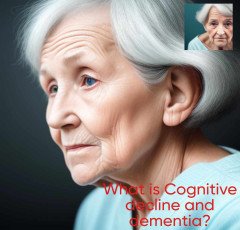

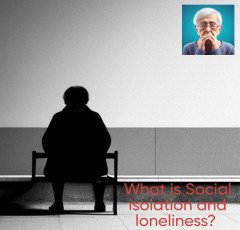

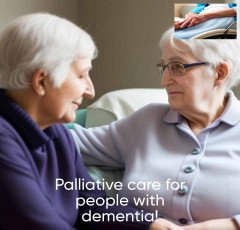
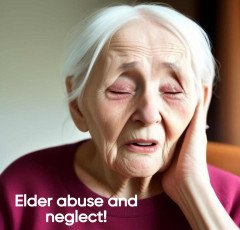
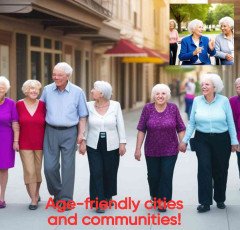






 ASUS Laptop
ASUS Laptop  Graphics & Design
Graphics & Design  1150+Trendy kids coloring pages Bundle
1150+Trendy kids coloring pages Bundle  NordVPN
NordVPN  Top Rated From Amazon
Top Rated From Amazon  RPM 3.0
RPM 3.0  Smart Doorbell
Smart Doorbell  Amazon Best Selling Products
Amazon Best Selling Products  NordPass
NordPass  Sennheiser
Sennheiser  One World Collection
One World Collection  Best Sellers On Amazon
Best Sellers On Amazon  Online Marketing
Online Marketing  Only For The United States
Only For The United States  Best Home Appliances
Best Home Appliances  Hello Theme
Hello Theme  Creative Brief For Video Shoot
Creative Brief For Video Shoot  Acer Laptop
Acer Laptop  Women Fashion
Women Fashion  SEO Checklist
SEO Checklist  Best Robotic Vacuum Cleaners
Best Robotic Vacuum Cleaners  Favorite Company (Cuelinks)
Favorite Company (Cuelinks)  ELECTRONIC ACCESSORIES
ELECTRONIC ACCESSORIES  All Wireless Products
All Wireless Products  The Secret Email System
The Secret Email System  SOFAS
SOFAS  Online Technology Classes
Online Technology Classes  NordLocker
NordLocker  ASPINAL LONDON
ASPINAL LONDON  Unlimited access to classes on illustration, photography, design, film, music
Unlimited access to classes on illustration, photography, design, film, music  Best Selling Books
Best Selling Books  Hot Bags For Pain Relief
Hot Bags For Pain Relief  TitTok Revolution
TitTok Revolution  BEST SELLER TOP10
BEST SELLER TOP10  Unreal Engine 5 For Beginners Learn The Basics Of Virtual Production
Unreal Engine 5 For Beginners Learn The Basics Of Virtual Production  Artificial Intelligence
Artificial Intelligence  The Click Engine
The Click Engine  Men Clothing
Men Clothing 
















